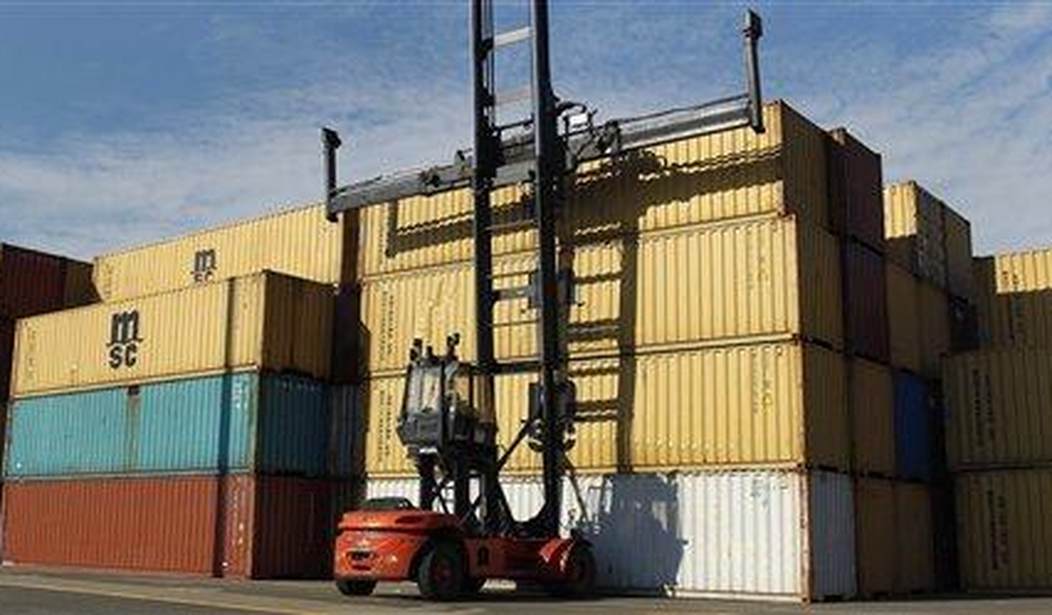Leaders of both parties agree: We must reduce globalization.
"China is ripping us on trade," says Donald Trump.
Our trade deficit is "an immorality," says Nancy Pelosi.
But it's not.
In my new video, Scott Lincicome of the Cato Institute points out, "Selling us stuff is hardly ripping us off."
He's right.
Our video debunks common misunderstandings about trade.
Myth No. 1: America is "losing."
People often say that because America runs a trade deficit.
But trade doesn't need to balance. I have a trade deficit with my supermarket. They get more of my money every year. So, what? I don't "lose." I get food without having to grow it myself.
That's a win for me and the food producer regardless of whether the food was grown locally or came from Mexico.
"Imports are great," says Lincicome. "It means I can focus on what I want to do for a living and not go make my own food or make my own clothes. I can use those savings and buy other things that makes me better off."
As long as trade is voluntary, trade is a win for both parties. It has to be; neither side would agree to it unless they think they get something out of the deal.
Myth No. 2: Imports take jobs from Americans.
Globalization "moved so many jobs and so much wealth out of our country," says Trump, "Workers have seen the jobs they love shipped thousands and thousands of miles away."
I say to Lincicome, "Some people do lose jobs."
"True," he replies, "We lose about 5 million jobs every month."
But trade isn't the main reason. "Jobs are lost due to ... changing consumer tastes and from innovation. We make more stuff with fewer workers. That's productivity."
Recommended
Productivity increases are good.
Trade and productivity improvements are reasons why the number of Americans who do have jobs has risen.
"We're at historically high manufacturing job openings," says Lincicome, "Manufacturers in the United States say they can't find enough workers."
Trade lets Americans focus on what we do best. Sixty percent of America's new jobs come from companies engaged in international trade.
But Trump says, "We don't make anything anymore!"
President Joe Biden agrees, "American manufacturing, the backbone of our economy, got hollowed out!"
That's Myth No. 3.
Manufacturing output in the U.S. is near its all-time high. We make more than Japan, Germany, India and South Korea combined.
Fortunately, real life ignores politicians' ignorance.
Myth No. 4: Trade and open markets create "a race to the bottom."
That's how Jon Stewart decries globalization on his show, saying, "Globalization allowed corporations to scour the planet for the cheapest labor and loosest regulations!"
That is true; companies do that. But Lincicome replies, "This 'race to the bottom' is a myth. We Americans are spoiled. We look upon jobs in the developing world, factory jobs, and say, 'Oh, how terrible this is that these people work for such low wages.' But the reality is that their alternatives are far, far worse ... subsistence farming ... sex work."
Trade is what lets people in poor countries escape subsistence farming and sex work.
And child labor, too.
"No parent wants his kid to go into the factory or farm," Lincicome points out. "They do it because they have no choice. As we get wealthier, child labor disappears. ... Factory owners in Vietnam now complain that kids these days ... don't want to work in the textile factory. That's not great for that factory owner, but it's great for those workers!"
Myth No. 5: Globalization destroys the environment.
"It's undeniably true that as a nation starts along its development path, that it's going to pollute more," concedes Lincicome. "But as countries get wealthy, they become better environmentally."
Only when people get wealthy enough to think beyond their next meal do we start to care about the environment. It's why pollution is dropping in America and other capitalist countries.
"The best thing that we can do for the developing world is to help countries get rich," says Lincicome. "Globalization is part of that recipe."
Trade is a win-win. It brings us more stuff at lower prices.
The more we trade, the better off we are.

























Join the conversation as a VIP Member